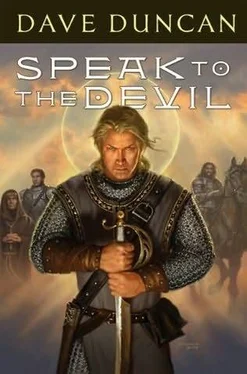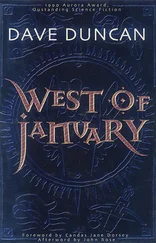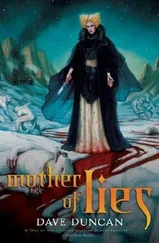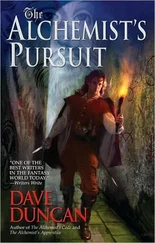Dave Duncan - Speak to the Devil
Здесь есть возможность читать онлайн «Dave Duncan - Speak to the Devil» весь текст электронной книги совершенно бесплатно (целиком полную версию без сокращений). В некоторых случаях можно слушать аудио, скачать через торрент в формате fb2 и присутствует краткое содержание. Жанр: Фэнтези, на английском языке. Описание произведения, (предисловие) а так же отзывы посетителей доступны на портале библиотеки ЛибКат.
- Название:Speak to the Devil
- Автор:
- Жанр:
- Год:неизвестен
- ISBN:нет данных
- Рейтинг книги:5 / 5. Голосов: 1
-
Избранное:Добавить в избранное
- Отзывы:
-
Ваша оценка:
- 100
- 1
- 2
- 3
- 4
- 5
Speak to the Devil: краткое содержание, описание и аннотация
Предлагаем к чтению аннотацию, описание, краткое содержание или предисловие (зависит от того, что написал сам автор книги «Speak to the Devil»). Если вы не нашли необходимую информацию о книге — напишите в комментариях, мы постараемся отыскать её.
Speak to the Devil — читать онлайн бесплатно полную книгу (весь текст) целиком
Ниже представлен текст книги, разбитый по страницам. Система сохранения места последней прочитанной страницы, позволяет с удобством читать онлайн бесплатно книгу «Speak to the Devil», без необходимости каждый раз заново искать на чём Вы остановились. Поставьте закладку, и сможете в любой момент перейти на страницу, на которой закончили чтение.
Интервал:
Закладка:
In addition to the porters and the normal sergeants-at-arms, there were at least a dozen soldiers present, half of them Cardice men and the other half landsknechte. The two were easily distinguished, because the locals wore conventional half armor of mail shirt and cuirass.
The mercenaries, on the other hand, were big, bearded Germans or Swiss, who seemed even bigger in their heavily padded armor-velvet or velour doublets and hose decorated with pleats and piping, slashed to expose linings of contrasting bright colors. No man was ever foolish enough to laugh at those, or at the gold chains around their necks or their wide, floppy hats with trailing ostrich plumes. Landsknechte were elite fighting troops, respected and feared all over Europe.
Ekkehardt’s band had been hired in the summer by Petr, when he visited Mauvnik. They had arrived about a month ago, six hundred fighting men complete with wagons, horses, wives, children, and the usual foul mob of loose women. The town, where nothing exciting ever happened, had been packed to the rafters since. There had been surprisingly few fights so far, but ill feeling rumbled like a mountain thunderstorm.
Only two men in the room mattered, and they were peering out through adjacent loopholes at the advancing troops. Constable Kavarskas was a lean timberwolf of a man, a seasoned warrior of around thirty, with a scar on his forehead, iron streaks in his hair, and deep furrows flanking his mouth. He had lost his left hand fighting in Italy, and a hook replaced it.
Ekkehardt, in all his glory of blue and yellow, was a thickset badger by comparison. If he was shorter, it was by very little, and the padding of his clothes merely emphasized the meaty bulk inside them. His beard and flowing mustaches were the color of ripe grain. Kavarskas turned away from his loophole just as Madlenka arrived behind him.
“Sir Karolis!”
He reversed his turn and looked down at her as if she were something underfoot. “My lady?”
“Do you still intend to let that army into the castle?”
“Of course not. Whatever gave you that idea?” He glanced at Ekkehardt with an expression of long-suffering bewilderment.
“The constable,” the landsknecht said in his heavy Saxon voice, “would never be so foolish, my lady.”
They were laughing at her.
“No doubt this is Count Vranov arriving in person to convey his respects to the countess,” Kavarskas continued, explaining carefully. “And your gracious self, of course. Such would be normal neighborly courtesy after so great a tragedy. He may have brought his wife, or some other family members along. A bodyguard is only a sensible precaution in these troubled times.”
“Sir Karolis,” Ekkehardt said, “suggested an honor guard of twenty knights to be admitted. This was too much, I thought. We agree Vranov should be allowed a token escort of five knights.”
“Once admitted,” the constable said, “he will be a guest protected by the laws of chivalry. To refuse him entry would be a gross discourtesy… my lady.” Karolis did not need to address her as if she were ten years old, but he always did. He was right, though, curse him. To refuse the Hound admission would be a serious insult.
Although Havel Vranov had never given her personal reason to hate or fear him, her parents had never spoken well of him. They rarely spoke ill either, preferring to change the subject whenever he was mentioned. Petr, more forthcoming, had said he was a savage and a monster. Gossip called him a prodigious lecher and adulterer. In odd-numbered years the lord of Pelrelm visited Cardice for a week or so to hunt with his counterpart, and in even years Father had returned the compliment. Normally that was the extent of their socializing, but this was Vranov’s third visit this year. He had come in the spring with a proposition that Madlenka marry one of his sons. Asked whether the one being exhibited was legitimate, he had pretended to be offended-not at the suggestion that he might have fathered children out of wedlock, but that he would honor his bastards with a noble marriage. He had also indicated that he had many sons and could, if legitimacy were not a problem, dig up others for Madlenka’s inspection. Count Stepan had declined both offers.
In the summer, after his return from Mauvnik, Petr had ridden over to the Hound’s den to pass on the news that the king expressly forbade any marriage connection between the two marches. Undeterred, Havel had returned to Cardice just a couple of weeks before the tragedy, offering yet another son. That time there had been words, and Father had sent him packing with threadbare courtesy.
But now Father was not there, and the Hound was.
“If we let him in, the rest of his men must go back down to the High Meadows!” Madlenka insisted.
Kavarskas sighed. “Arturas the herald has been so instructed and is down there now. Did you really believe that I would just throw open the gates to such a force?”
“You just did, didn’t you?” she yelled.
He glanced at the bishop as if hoping for sympathy or support. “My lady, the outer gate is always opened at sunrise in times of peace. It would be offensive to leave it closed when a friend is approaching. However, if you will look at the second windlass, over there, you will see from the lack of chain wound around it that the inner gate is still closed. These hatches in the floor cover murther holes, through which we can rain missiles or boiling oil down on intruders. The castle is still secure against anything short of a siege train.”
Madlenka felt her face flame behind her veil. She was virtually certain that last night he had told her that the gates would be opened “as usual.” Perhaps he had not actually lied, but he had certainly misled her and tricked her into making a fool of herself, raising an alarm where none existed. No doubt this was her punishment for summoning him.
Bishop Ugne was listening, smiling flabbily, and saying nothing. The wind had turned him even redder than the stones of the castle walls.
Outside, the clatter of hooves died away and was replaced by a shrill silver fanfare.
“Now we shall see, my lady,” the constable said. “If they accept the terms Arturas offers, he will signal us to raise the inner gate. Perhaps you should go and warn your lady mother so that she can make ready to receive the visitors.” The constable knew very well that Edita was in no state to greet anyone.
Smarting with humiliation, dismissed like an infant, Madlenka turned to retrace her steps.
“Wait!” Bishop Ugne was addressing the two men, not her. “The last time Havel Vranov came to this castle, he was accompanied by a false priest, a Father Vilhelmas. That man is a heretic, a schismatic. You will not allow him back in.”
For a moment there was silence while Sir Karolis assessed this unexpected challenge. He glanced at the landsknecht captain and seemed to conclude that it was none of Ekkehardt’s business. Ekkehardt did not look anxious to intervene anyway. So it was up to Karolis to respond. The old enmity between church and state was back again.
“I agree, my lord bishop, that you are charged with protecting the souls of the good Christians of Cardice and keeping them safely in the bosom of Rome, but if Count Vranov chooses to convert to the Eastern confession, that-”
“Pomerania bows the knee to the Greek patriarch, but King Konrad has decreed that Jorgary will follow the true Catholic faith. Suppression of heresy is my business, not yours, constable, and my authority comes from the Lord of All. I say that the man Vilhelmas must not be admitted.”
The bishop was a proud man, accustomed to authority. So was the constable, and he must maintain his dignity before an audience made up of Ekkehardt’s mercenaries and his own troops. “On the contrary, my lord bishop: in matters of this world, mine is the authority. Until His Majesty appoints a new keeper, I shall continue to do my duty as the late count wished me to. He allowed the priest in and so shall I.”
Читать дальшеИнтервал:
Закладка:
Похожие книги на «Speak to the Devil»
Представляем Вашему вниманию похожие книги на «Speak to the Devil» списком для выбора. Мы отобрали схожую по названию и смыслу литературу в надежде предоставить читателям больше вариантов отыскать новые, интересные, ещё непрочитанные произведения.
Обсуждение, отзывы о книге «Speak to the Devil» и просто собственные мнения читателей. Оставьте ваши комментарии, напишите, что Вы думаете о произведении, его смысле или главных героях. Укажите что конкретно понравилось, а что нет, и почему Вы так считаете.











